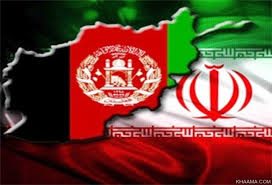Al-Monitor – Just one week after American officials reportedly met with a Taliban delegation in the United Arab Emirates (UAE), Secretary of Iran’s Supreme National Security Council Adm. Ali Shamkhani confirmed for the first time that Iran has also held talks with the Taliban. Shamkhani made the comments during a Dec. 26 visit to Kabul to meet with Afghan officials, including President Ashraf Ghani, Chief Executive Abdullah Abdullah and national security adviser Hamdullah Mohib, to discuss regional and bilateral security issues.
According to Shamkhani, the purpose of the talks between Iran and the Taliban were conducted in order to “solve security problems” and “the entirety of the talks with the Taliban were held with the knowledge of the Afghan government.” He said the “process of the talks would continue.”
Stories of Iran-Taliban relations have circulated in recent years and are filled with accusations and mostly denials. The United States has previously accused Iran of having relations with and even funding the Taliban. In 2016, when a US drone strike killed Taliban leader Mullah Mansoor near the Iranian border, there were reports that he was returning from Iran. In May, Iran’s Ambassador to Afghanistan Mohammad Reza Bahrami confirmed that Iran had “contacts” with the Taliban but denied having relations, saying, “We did not turn these contacts into relations because we did not want to legitimize the Taliban.”
There could be many reasons for Shamkhani’s confirmation. Iranian analyst Pir Mohammad Molazehi told Donya-e Eqtesad daily that the reported meeting between the Taliban and US officials on Dec. 17 in Abu Dhabi likely sparked this confirmation by Shamkhani. Representatives from Saudi Arabia, Pakistan and the UAE were present at the meeting, which was preceded by US Special Envoy to Afghanistan Zalmay Khalilzad holding talks with a Taliban delegation in Qatar.
Molazehi believes that if Iran, and even Russia, are kept out of talks with the Taliban, then more “radical” elements within the Taliban would take the lead on talks, “which would conflict with Iran’s interests.” He said Shamkhani’s confirmation about talks with the Taliban shows Iran’s intentions to not be eliminated from the talks and also served as a “reminder to all those involved in the negotiations of Iran’s role in the region.”
Shamkhani’s comments about talks with the Taliban could also be related to Iran’s fight against the Islamic State (IS) and concerns about their presence in Afghanistan. During his meetings with Afghan officials, Shamkhani warned against the possibility of IS fighters moving into Afghanistan. “The enemies of regional peace and security, in an organized action, are pursuing instability in shared borders, meaning transferring Daesh [IS] to Afghanistan and spreading takfiri terrorism in this country, [inflaming war], bloodletting and insecurity in this region once again,” Shamkhani said. He warned that neglecting the threat of IS could lead to a repeat of what happened in Iraq and Syria.
Kayhan newspaper, whose editor is appointed by Supreme Leader Ayatollah Ali Khamenei’s office, chose as its headline, “Shamkhani’s warning about transferring Daesh elements to Afghanistan.” Javan Newspaper, which is linked to the Islamic Revolutionary Guard Corps, chose as its headline, “Talks with the Taliban, Confrontation with Daesh.”
One of the methods Iran plans to use in its fight against IS is through the Regional Security Dialogue, which it hosted in September with the presence of the national security advisers of Iran, Afghanistan, India, Russia and China. Regarding this conference, which will be held next in Afghanistan, Shamkhani said, “Creating mechanisms based on continuous talks and active participation regional countries, in security processes, can ensure stability and durability for the people of the region.”
Shamkani also addressed the US presence in Afghanistan during a meeting with former President Hamid Karzai. “America has never had good intentions for the people of Afghanistan, and the military presence of this country in Afghanistan will end in nothing but an increase in insecurity and instability,” he said. In addition to the talks held with the Taliban, some believe that US President Donald Trump plans to leave Afghanistan sooner than 2020.
Whether Iran’s confirmation of talks with the Taliban is due to the recent US-Taliban meeting or the belief that the United States is on its way out sooner rather than later, Iranian media was quick to both highlight Shamkhani’s comments about talks with the Taliban and also frame it as being in line with combatting IS. Former Deputy Foreign Minister for Arab Affairs and current adviser to the speaker of parliament Hossein Amir-Abdollahian summed it all up in a tweet, “During the same moment that Adm. Shamkhani — with advanced warning — traveled to Afghanistan, which is full of danger, Trump traveled secretly to a not dangerous Baghdad. This is the reality of Iran and America.”
 Shabtabnews In this dark night, I have lost my way – Arise from a corner, oh you the star of guidance.
Shabtabnews In this dark night, I have lost my way – Arise from a corner, oh you the star of guidance.



